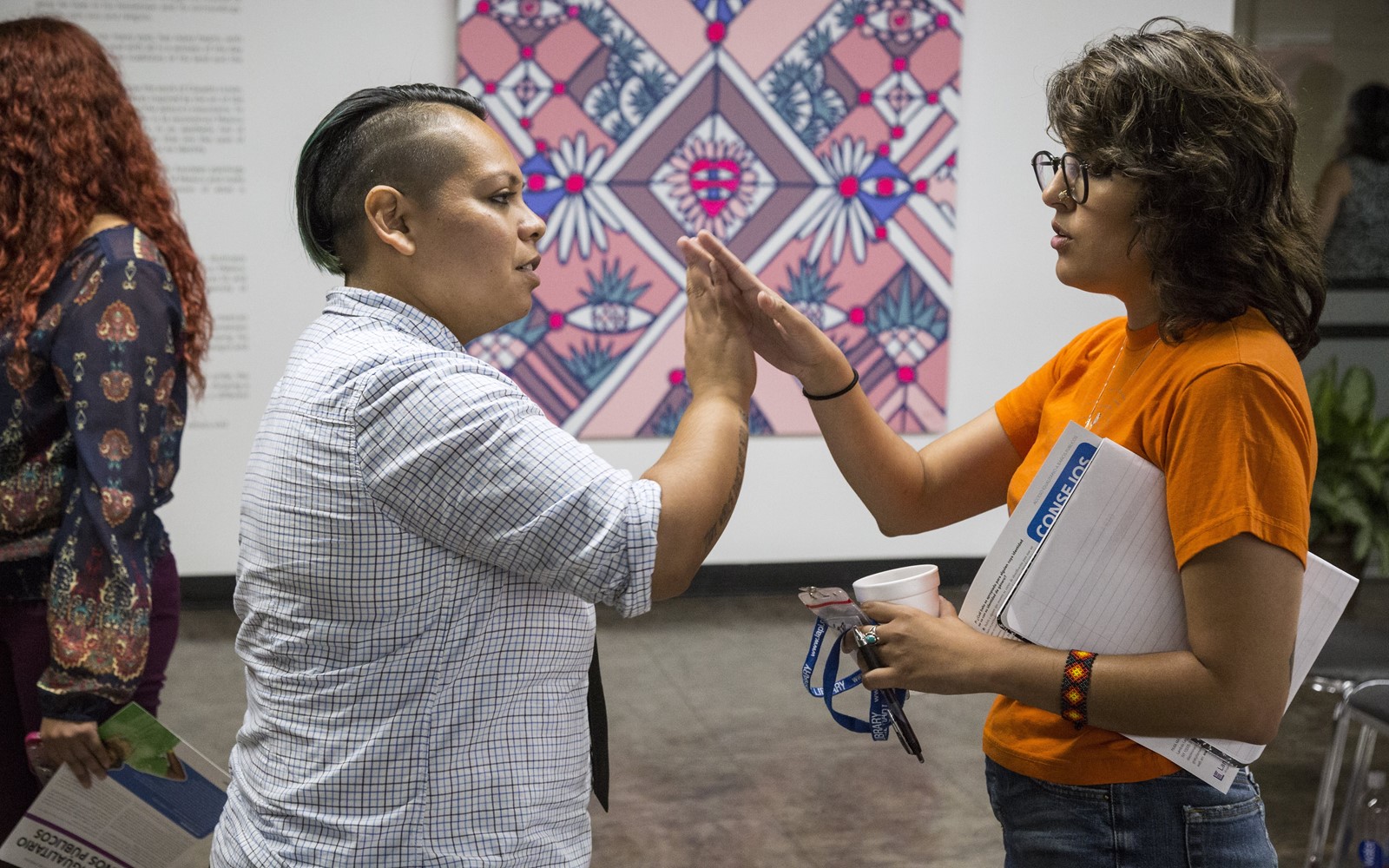RAISING AWARENESS
Mexican Consulate in L.A. trains employees on LGBTQ sensitivity as part of push to treat all ‘not just with respect, but with dignity’



When Dulce María Flores Colorado started working at the Mexican Consulate in Los Angeles a decade ago, she instantly noticed the awkward little interactions that occurred between her colleagues and LGBTQ clients.
Consular employees would use the wrong gender pronouns. They would not quite know how to talk about same-sex relationships.
“There was a wall between us, between the people who serve and the people who requested services,” said Colorado, who is a lesbian. “My co-workers are very respectful … but there was misinformation, a lack of training.”
Last week, the consulate took a step toward remedying such awkward interactions when it held LGBTQ sensitivity training sessions for all of its employees.
The training was part of a broader push by Mexican consulates worldwide to be more visibly supportive of LGBTQ people, said Carlos García de Alba, the consul general in Los Angeles.
“We need to make sure that all these people are treated not just with respect, but with dignity,” he said. “It’s important to understand that it’s not a concession, it’s a right.... Once they’re in the Mexican Consulate, these people can be sure they will be very welcome.”
LGBTQ rights are a hot-button issue in Mexico. Same-sex marriage is legal in several states, but discrimination and violence against gay, bisexual and transgender people is a regular occurrence in many parts of the country.
Tens of thousands of Mexicans, including Tijuana’s Roman Catholic archbishop, took to the streets last year to protest a proposal by President Enrique Peña Nieto to legalize same-sex marriage. And fans of Mexico’s national soccer team have been widely condemned for their refusal to give up a game-day chant that includes what many consider a slur against gay men.
But this spring, federal officials sent messages to Mexican consulates around the world, asking them to participate in local pride events, work with LGBTQ rights organizations and conduct sensitivity training, according to Colorado, who works in the Los Angeles consulate’s legal department and who helped organize the sensitivity training.
“We are conscious that we need to be more active, we need to speed up. The outreach has to be wider, deeper,” said García de Alba, adding that more LGBTQ-focused events are planned for the consulate.
The recent training sessions, held at the consulate building across from MacArthur Park, were done in coordination with the Los Angeles LGBT Center, GLAAD and Lambda Legal.
Trainers explained the difference between gender identity and sexual orientation, broke down the LGBTQ acronym (lesbian, gay, bisexual, transgender, queer or questioning) and discussed misperceptions about the community — such as that a person must have sex reassignment surgery or must physically look a certain way to be considered transgender.
One of the trainers, Monica Trasandes, the director of Spanish-language and Latino media at GLAAD, said the training was especially important for Latino LGBTQ people, who could be doubly discriminated against because of their ethnicity and their sexual orientation or gender identity.
Mariana Marroquin, program manager of the L.A. LGBT Center’s Anti- Violence Project, told the crowd about her experience as a transgender Latina. Marroquin, who is originally from Guatemala, said she has been humiliated at the Guatemalan Consulate when forced to remove her makeup in order to receive her legal documents.
Marroquin said in an interview that she works daily with Latino LGBTQ clients, many of them from Mexico, who have experienced harassment, violence or discrimination in finding housing and work.
“Even though we are in the U.S. and L.A. and there are laws in California that protect LGBT people, the reality is we see people discriminated against from their own community, the immigrant community,” she said. “I think the Mexican Consulate is setting an example.”
Colorado has always been open about her sexuality at work, and she hopes to one day see LGBTQ liaisons at every Mexican Consulate.
Colorado was born and spent her childhood in the Mexican state of Tabasco, where, she said, she was bullied because she did not look or act feminine. She moved to Tijuana as a teenager.
It wasn’t until she moved to the city that she met other people like her and realized it was not a bad thing for her to be gay, Colorado said.
She still hears all the time from LGBTQ people who have to leave home in Mexico because of harassment.
“Every state has their own way of perceiving LGBT people,” Colorado said. “Most of the reasons they have to leave their home state is they can’t handle it anymore, just like me.”
Last month, with Mexican officials’ blessing, Colorado marched in the LA Pride #ResistMarch. She carried a purple banner with the logo of the consulate.
People were surprised, she said. It was the first time the consulate had participated in the event.
Mexican immigrants came up and hugged her and thanked her, she said. Others started chanting: “Mexico! Mexico!”
Colorado said it was the best day of her life.


